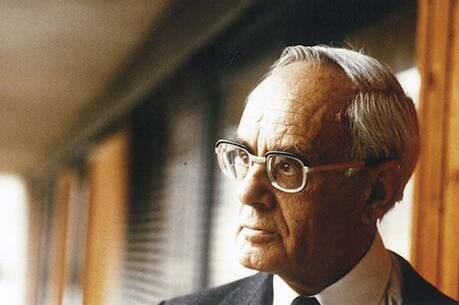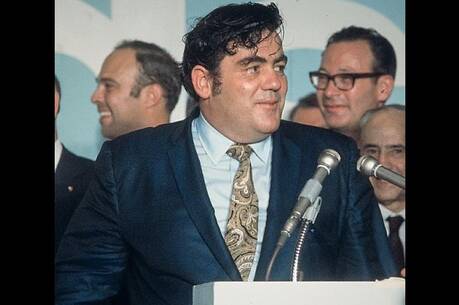She Knows, and Shows, the Way
Prayer is not alien territory for women. They know the terrain well. Detours...bumps... shortcuts...slippery roads...smooth sailing...dangerous intersections...cruise control. They’ve been there. Done that.
Fortunately for us all, women have left behind records of their journeys. Sometimes these have been in the shape of diaries, sometimes in episodic reflections on their experiences, sometimes through letters, sometimes in the form of counsel to others, sometimes in the form of prayers sent like arrows to the heart of God.
In the three books under review, we have three different examples of how women and prayer meet. We have wise advice about the practice of prayer from Emilie Griffin, a collection of prayers written by women from Monica Furlong and a personal dialogue between herself and God recorded by Catherine of Siena.
In Doors Into Prayer: An Invitation, Emilie Griffin tells us her book is about possibilities, and she generously offers about 40 of these under such headings as Repetition, Longing, Surprises, Prayer-Scapes, Asking and Heights. Her offerings are deceptively simple and solid at the same time. Each is a gem.
Griffin is an author and retreat director, and these dual roles are evident both in the counsel she gives and the way she offers it. She writes exceedingly well about what concerns and interests ordinary, busy people who also want to pray and be in relationship with God. Need help beginning to pray? We hear Griffin’s assurance that prayer is built into us, ready to flow when trouble hits. She recalls that when she huddled in a doorway in Mexico during an earthquake, she had been praying before she was even conscious of it. In emergencies, she says, underscoring the point, without much coaching, we pray.
Does length of our prayer time matter? Sometimes, says Griffin, when we are right in the middle of things, all the prayer we can muster is in little short stabs. I need you, God. Can you work with me here? And maybe, she concludes, these little stabs are all we need. And what about hitting a blank wall in prayer? Griffin suggests a common sense approach first. Maybe we are exhausted. Or maybe we need variety in our prayer life. Or maybe, more seriously, our image of God is twisted, narrow and small, and we need to swap such a tight-fisted God idea for one that is more generous and life-giving.
Generous and life-giving are also good words to describe this book.
Monica Furlong’s book, Women Pray, is a wonderful compilation of prayers by women from many religious traditions: Buddhist, Jewish, Christian, Native American and others. Emily Dickinson, Hildegard of Bingen, Denise Levertov, Alice Walker, Irina Ratushinskaya, Jane Austen, Mirabai and many, many others find their voices in these pages.
In fact, Furlong reminds us that it is only recently that women’s voices have been raisedin large numbersin public prayer. There were exceptions (the Shakers, for example, whose leader was Ann Lee, and the Quakers, who gave to women an unusually prominent role), but in most other traditions, women’s public roles were limited. Furlong redresses the balance and restores some of what was suppressed or lost along the way.
But this is not a book with an edge or an author with a grudge. Furlong is too prayerful and gracious for that. Instead, she thoughtfully introduces us to women whose prayers on themes of poverty, justice, goodness and love in desperate situations stun us with their transparent authenticity. Furlong writes that this book is for those who love God, or wish they did; for those who love humanity, and wished they loved it better; and those who love the natural world, but feel at a loss to halt its damage and decline. It is prayer, for Furlong, that may spur us to better and wiser efforts in all these areas.
We are in the hands of an especially gifted writer with Monica Furlong. Her editor and publisher must have been aware of Furlong’s competency and of the importance of this collection, since they lavished special care on the book’s cover and binding, added a silk ribbon marker and included an index of first lines of poems and mini-biographies of the poets.
Everything about this book makes it a first-rate choice as a gift for any woman, but maybe above all for young women, so they lose no time in connecting with the impressive heritage of their foremothers.
Little Talks With God gathers selections from Catherine of Siena’s Dialog in an especially accessible translation, mildly modernized by Henry L. Carrigan Jr.
Let it be known, for those who have never read the Dialog, that it is not easy going. Catherine is not a linear author but rather a circuitous and complex one with circles overlapping one another and ideas and images swirling about.
Suzanne Noffke has prepared a commendable translation of Catherine’s classic, but Carrigan used instead Algar Thorold’s 1907 version. Surprisingly, it serves Carrigan’s purposes well. He selects four themes from the Dialog: Divine Providence, Discretion, Prayer and Obedience. Faithful to Catherine’s life and spirit, the selections under these themes highlight the ways contemplation and action are part of a seamless garment. Carrigan edits judiciously so that the text flows and is unencumbered by archaic 14th-century terminology. In fact, Carrigan tells us he shaped syntax and grammar intentionally to make it livelier and more appealing to a contemporary audience. He also tells us that he attempted to use inclusive language, but on this point, he was not especially successful.
Familiar themes and images from Catherine are here: the bridge (with shops on either side and flood rivers below) that leads to God, trees planted in the good soil of humility and self-knowledge, and the fruit that finally grows as witness to the tree’s faithfulness.
Catherine’s images are original and brilliantly elaborated. This book might be just the right companion for someone traveling in Catherine’s footsteps to la bella Toscana.
This article also appeared in print, under the headline “She Knows, and Shows, the Way,” in the November 26, 2001, issue.








